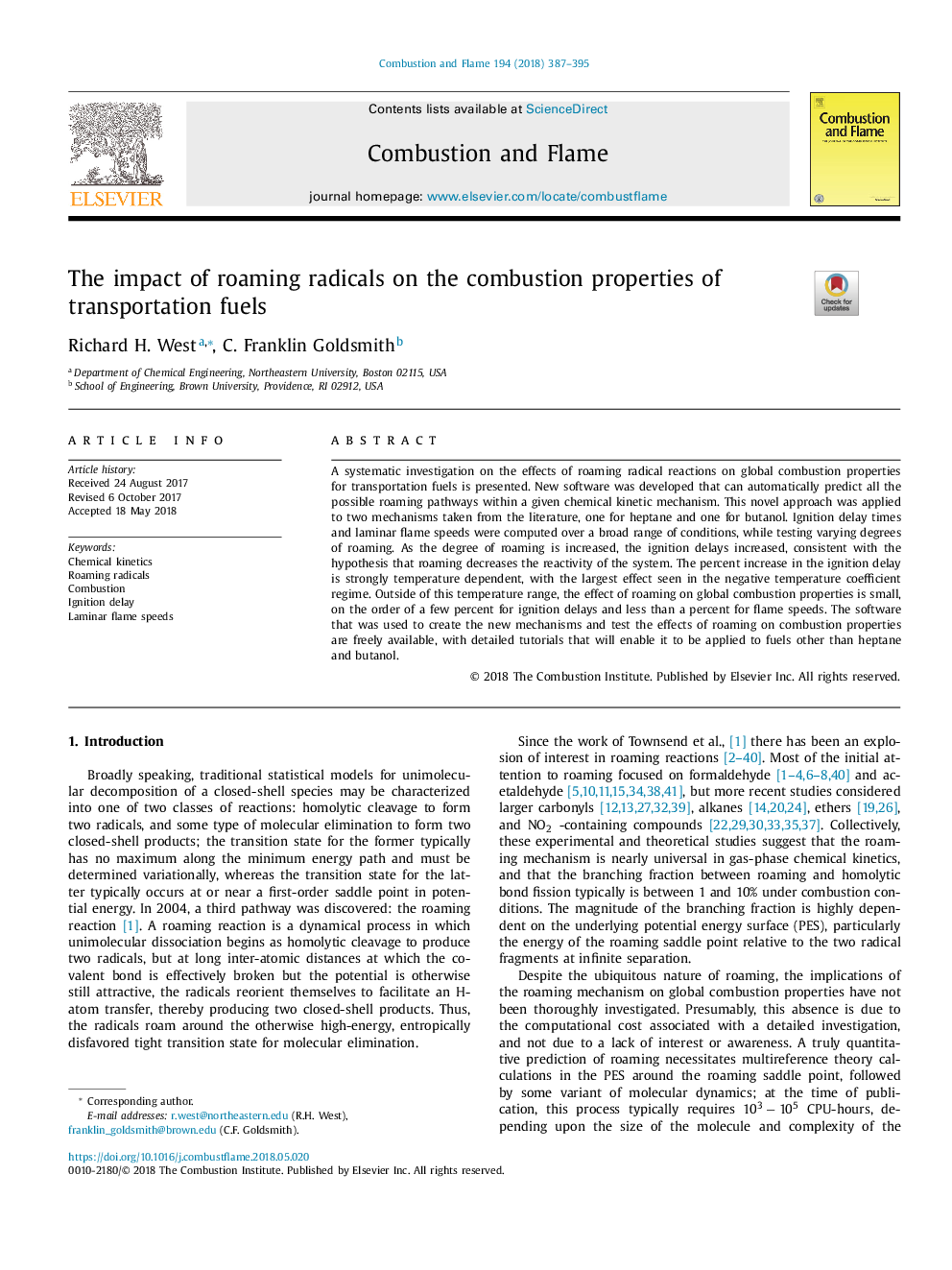| Article ID | Journal | Published Year | Pages | File Type |
|---|---|---|---|---|
| 6593504 | Combustion and Flame | 2018 | 9 Pages |
Abstract
A systematic investigation on the effects of roaming radical reactions on global combustion properties for transportation fuels is presented. New software was developed that can automatically predict all the possible roaming pathways within a given chemical kinetic mechanism. This novel approach was applied to two mechanisms taken from the literature, one for heptane and one for butanol. Ignition delay times and laminar flame speeds were computed over a broad range of conditions, while testing varying degrees of roaming. As the degree of roaming is increased, the ignition delays increased, consistent with the hypothesis that roaming decreases the reactivity of the system. The percent increase in the ignition delay is strongly temperature dependent, with the largest effect seen in the negative temperature coefficient regime. Outside of this temperature range, the effect of roaming on global combustion properties is small, on the order of a few percent for ignition delays and less than a percent for flame speeds. The software that was used to create the new mechanisms and test the effects of roaming on combustion properties are freely available, with detailed tutorials that will enable it to be applied to fuels other than heptane and butanol.
Related Topics
Physical Sciences and Engineering
Chemical Engineering
Chemical Engineering (General)
Authors
Richard H. West, C. Franklin Goldsmith,
